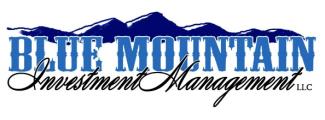
Credit Hacks Every Young Adult Should Know to Build a Strong Financial Future
If you’re in your 20s or early 30s, you’ve probably heard the basics about credit — pay on time, keep balances low, check your score regularly. But what if there were effective, lesser-known strategies that could help you build strong credit faster, save money, and unlock better financial opportunities?
At Blue Mountain Investment Management, we work with many young adults just like you who want to take control of their credit and financial future. Here are some essential credit hacks you may not know but can make a big difference over time.
Keep Your Old Accounts Open
One of the most overlooked factors in your credit score is the length of your credit history. This includes how long your oldest accounts have been open. Even if you don’t use an old credit card anymore, closing it can actually lower your score. That’s because a longer credit history shows lenders that you have experience managing credit responsibly over time.
Tip: Resist the urge to close old accounts unless there’s a compelling reason like high fees. Keeping them open helps build your credit age — a key component of your overall credit health.
Pay Your Credit Card Bill Before the Statement Closes
Most people think paying their credit card by the due date is enough. But your credit utilization — the percentage of your credit limit you’re using — is reported based on your statement balance at the end of the billing cycle, not your balance on the due date.
This means if you pay your balance in full but only after the statement closes, the credit bureaus see the higher balance and your utilization appears higher than it actually is. To get the best score boost, try paying down your balance before your statement closes.
Become an Authorized User on a Trusted Account
If you’re new to credit or working to build it, being added as an authorized user on a family member’s or trusted friend’s credit card can help. You benefit from their positive payment history and credit utilization without having to manage the account yourself.
However, make sure the primary cardholder uses credit responsibly. Negative activity on that account could affect your credit score.
Use Services That Report Bills You Already Pay
Did you know that your regular utility, phone, and internet payments usually don’t count toward your credit score? Some services, like Experian Boost, allow you to include these payments on your credit report, which can improve your score without extra spending.
This is an easy way to strengthen your credit profile by showing consistent payment behavior on bills you already pay every month.
Don’t Fear Soft Credit Checks
When you check your own credit score or get prequalified offers from lenders, it results in a soft inquiry — which does not impact your credit score. Many young adults avoid checking their credit for fear of hurting their score, but these soft pulls are safe and can help you shop around for the best credit cards or loans.
Why Building Credit Early Matters
Establishing a solid credit history while you’re young sets you up for better financial opportunities down the road. Good credit can mean:
- Lower interest rates on car loans, mortgages, and credit cards
- Easier approval for rental applications
- Better insurance rates
- Greater access to credit when you need it
The habits you form now will impact your financial freedom for years to come. Start applying these strategies today, and you’ll be laying the groundwork for a stronger financial future. With patience and consistency, your credit can become a powerful tool that works for you—not against you.

